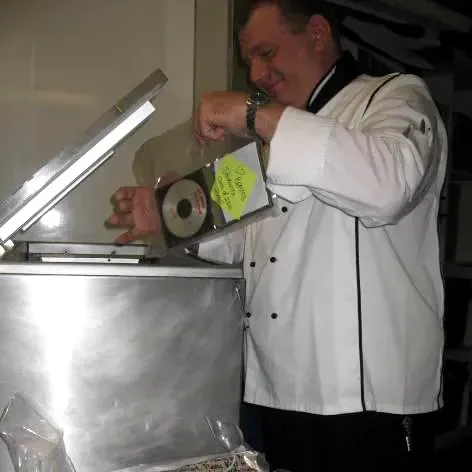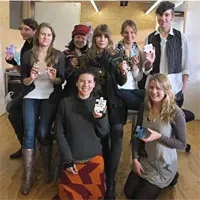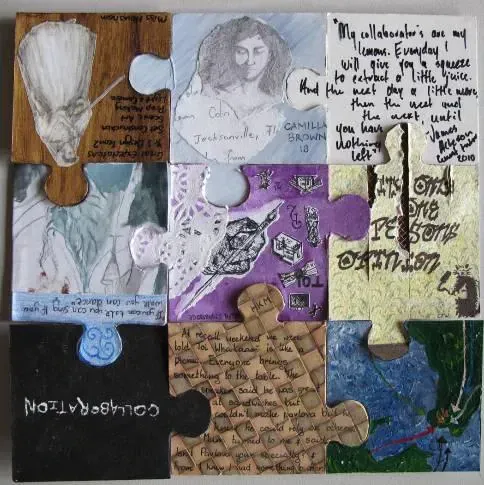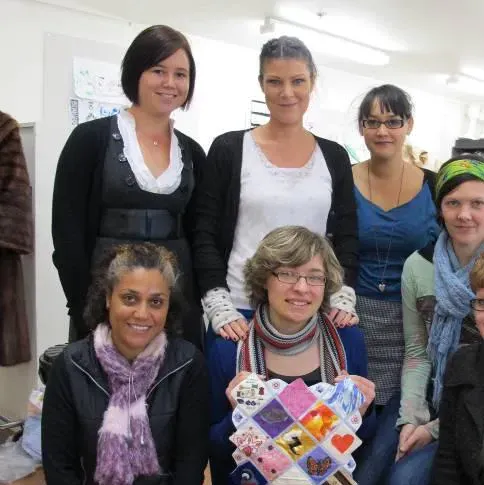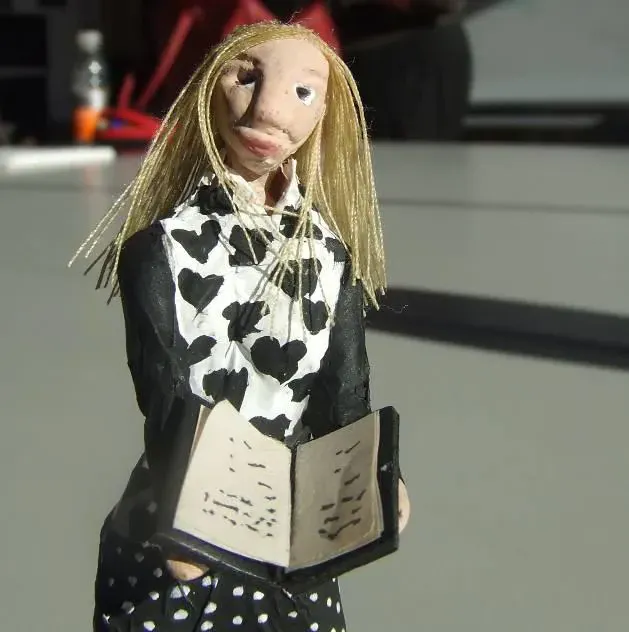TBI Q&A: Annie Ruth
Written by
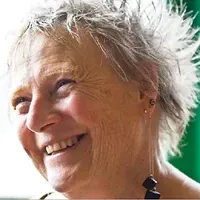
Toi Whakaari is celebrating its 40th anniversary this year. Director Annie Ruth, one the NZ Drama School's first graduates, reflects on its founding vision, the changes since then and the outlook for graduates today.
She says burying a time capsule this week, to be opened in 2050, “made concrete our faith that the School will still be here in another 40 years time.”
The time capsule included this letter from Annie Ruth to the future Director of Toi Whakaari:
"If I look backwards 40 years I get a sense of how very long that can be in both a personal story and the story of an institution. So it is difficult to wrap my head around the world you will be living in. I wonder if some of the same issues that every director of this school has faced continue to concern you – the need to continually adapt and expand our building, the need to secure an adequate funding base and the need to continually deepen the investigation into how the way we build ourselves as a community is reflected in the kind of artists we become."
Happy Anniversary! How is the School celebrating 40 years?
40 years is quite a milestone and so we are celebrating in a number of ways:
• We’ve brought over some amazing international directors, designers and teachers to work with our student, Lisa Harrow (UK actor), Jean-Guy Lecat (for 30 years Peter Brook’s theatre designer), Harry Fuhrmann (Berlin director) to name just a few.
• On Monday 14 June the Governor General and his wife helped us bury a Time Capsule and plant a kowhai tree outside the school. In putting the capsule into the earth we marked this moment in time, with recordings and artifacts from the students and staff. It also made concrete our faith that the School will still be here in another 40 years time.
• Yesterday, Wednesday 16 June, we had a public Conversation with Peter Land, who graduated in 1975. As well as talking about his successful career in London and Broadway Peter reflected on the School in which he trained and the one he is encountering now, 35 years later.
How many graduates have you had in 40 years – and what percentage work in the industry today?
650.
Last time I did a census of the graduates 80% of the actors and 90% of the technicians, directors and managers remained in the industry, though not necessarily doing the roles for which they trained. E.g. some have gone on to be playwrights and casting agents. The design degree is too new to make meaningful statistics but our design graduates are experiencing considerable success, e.g. Brian King in stage design and Matthew Kleinhans in screen.
Who are some of the graduates?
The above mentioned Peter Land, one of Toi Whakaari’s most successful and sought-after international stage actors, who has worked, for example, with the Royal Shakespeare Company and the National Theatre in the UK.
Robyn Malcolm, Kirk Torrence, Miranda Harcourt, and Jenny Ludlam – all actors with successful national careers both on stage and screen. Louis Sutherland, writer and co-director of short film Six Dollar Fifty Man.
Kerry Fox, Cliff Curtis and Simon Phillips – international careers: Kerry primarily in the UK stage and screen, Cliff primarily in the US screen, Simon in Australia as Artistic Director of Melbourne Theatre Company - his production Priscilla Queen of the Desert currently in London’s West End.
Erik Thomson (1990) has been nominated for a Gold Logie in the category of Most Popular Male Actor for his starring role in Packed to the Rafters. Erik can also be seen opposite Geena Davis in the Australian film Accidents Happen.
Willem Wassenaar and Leo-Gene Peters, both Chapman-Tripp Award winning directors.
Nigel Scott, sound designer, part of The Lord of the Rings sound design team and Simon Bennett, Head of Drama at South Pacific Pictures.
Recent graduates – Chelsie Preston Crayford stars in film Home by Christmas, Guy Langford won ‘pick of the fringe’ for his solo show, Wannabe.
And these are just a small sampling!
You were one of the first drama school graduates what was it like then and how did it influence your life and career?
There were eight of us in the year (and therefore in the school). It was a one-year, full-time course. Though, even then, the first director, Nola Millar, was trying to get funding to make it a longer course, which it needed to be. Rawiri Paratene was in my year. So was Kathryn Rawlings, who is now an actors’ agent in Auckland.
It influenced my life enormously. The quality of the learning was very high. I was so inspired by my teachers, who included Nola Millar, Caro Ormond and Rona Bailey. Most of my professional life has been in theatre and theatre training.
What’s the outlook for a graduate today compared to 40 years ago?
In some ways there were more options – community theatres were appearing in the major cities and towns and we expected this trend to continue (the reality has been quite the opposite). But screen work has increased exponentially. The other big change is the number of artist practitioners forming small companies. And graduates today are far more sophisticated in being aware of the different kinds of employment options, of the different demands in each sphere and have an ability to move between them.
What was Toi Whakaari’s founding vision?
To train actors for New Zealand theatre. To be a catalyst for the theatre profession in New Zealand. Our current mission statement is: Building theatre and screen professionals for tomorrow. Education and research globally. Current vision: To be a leading centre for innovation in theatre and screen.
What have been some of the major changes, over time and recently?
We now train for screen as well as theatre, not just actors, but directors, designers, technicians, managers and costumiers. In bringing on these new courses, our dream to train for the wide scope of our industry and not just a tiny segment was fulfilled. Introducing these complementary disciplines has increased our focus on interdisciplinary cooperation and exploration.
What have been some of the main achievements in 40 years?
Graduating 650 people into the theatre and screen professions.
The wonderful national and international staff and tutors that have taught here.
The productions over the years: some personal favourites being Coming Home directed by George Webby, Pentecost directed by Robin Payne and Into the Woods directed by Miranda Harcourt.
Gaining a permanent home for the school in our beautiful building of Te Whaea which allows for growth.
There’s been a core growth in tikanga Maori as a framework through which to build community and an understanding of and ability to deal with difference.
We have made space in the programme for student-led initiatives and to grow leadership and autonomy. And we have substantially increased the screen component in our acting and design degrees.
How has the theatre landscape in NZ changed since then?
Fewer community theatres, little chance to be part of a company, most practitioners are employed project by project. This makes any sustained investigation very difficult. Huge increase in screen opportunities. Huge increase in New Zealand work and devised theatre.
How long have you been the Director, why did you return, what does your role include?
14 years. (And before that six years, initially as an acting tutor and then Head of Acting Department.) I was working as an actor and an improviser and as a trained teacher I saw a contribution I could make to the school.
My role includes leadership and strategic planning, management, financial acumen, teaching, directing, educational compliance and reporting, international relationships and benchmarking, mentoring, relationship building with national industry and educational bodies, building developments, Board relationships…
What's your number one business tip for surviving (and thriving) in the creative industries?
Adaptability, stamina, drive, understanding your own purpose and artistic questions and a degree of single-mindedness in pursuing them, courage, playfulness, finding the people who will support you in your work and defining success on your own terms.
Toi Whakaari Time Capsule was buried this week. What did it include? What was your personal contribution?
Voice recordings and images from staff and students, artifacts made by students. A recording of a staff meeting etc. I wrote a letter to the director of the future and gifted that person with a small object that was gifted to me on the day I became director and has sat on my desk ever since.
